Soleirolia soleirolii care guide – 5 expert tips for this humble creeper
Mind-your-own-business plant might go unnoticed, but it can play a very important role in your yard


Design expertise in your inbox – from inspiring decorating ideas and beautiful celebrity homes to practical gardening advice and shopping round-ups.
You are now subscribed
Your newsletter sign-up was successful
Want to add more newsletters?

Twice a week
Homes&Gardens
The ultimate interior design resource from the world's leading experts - discover inspiring decorating ideas, color scheming know-how, garden inspiration and shopping expertise.

Once a week
In The Loop from Next In Design
Members of the Next in Design Circle will receive In the Loop, our weekly email filled with trade news, names to know and spotlight moments. Together we’re building a brighter design future.

Twice a week
Cucina
Whether you’re passionate about hosting exquisite dinners, experimenting with culinary trends, or perfecting your kitchen's design with timeless elegance and innovative functionality, this newsletter is here to inspire
When you have small spots in your yard that need filling, the fast-growing plant for ground cover Soleirolia soleirolii can lend a helping hand.
Better known as mind-your-own-business or baby's tears, this vibrant green creeper doesn't like to shout for attention, but can help complete displays with its gem-sized leaves that like to crawl quickly. You can create lush carpets of this creeper, but it is also highly versatile.
'This creeping plant is ideal for those unsightly gaps in between paving or cracks in the garden wall, it really can grow anywhere,' says Thomas Rutter, Content Editor at Homes & Gardens.
'Many garden designers use this plant to add greenery to hard landscaping elements in backyards, helping to soften the edges of patios and pathways,' he adds.
Baby's tears plant is native to Mediterranean climates around Italy and can grow outdoors in US hardiness zones 9-11, but it can also be grown indoors as a houseplant.
We've spoken to experts to find out what you can do to keep your mind-your-own-business plant thriving and looking its best.


Thomas is a Content Editor within the Gardens Team at Homes and Gardens. He has been working as a gardener and garden writer for several years. Whilst completing his Horticultural Traineeship at the Garden Museum, London, he was able to gain experience at many of the UK's world-famous gardens, including Sissinghurst, Lowther Castle, and Iford Manor. Following this, he worked for two private estates in Tuscany, Italy. During this time, he developed expertise regarding practical gardening and growing in dry and hot climates. He has managed kitchen gardens and cut flower gardens, providing food and flowers to be enjoyed on a daily basis
5 expert tips for Soleirolia soleirolii
The mind-your-own-business plant can easily go unnoticed, but its delicate leaves are ideal for filling gaps in your yard or adding greenery to your home. We've gathered expert tips for keeping Soleirolia soleirolii in top condition.
Design expertise in your inbox – from inspiring decorating ideas and beautiful celebrity homes to practical gardening advice and shopping round-ups.
1. Choose shadier spots
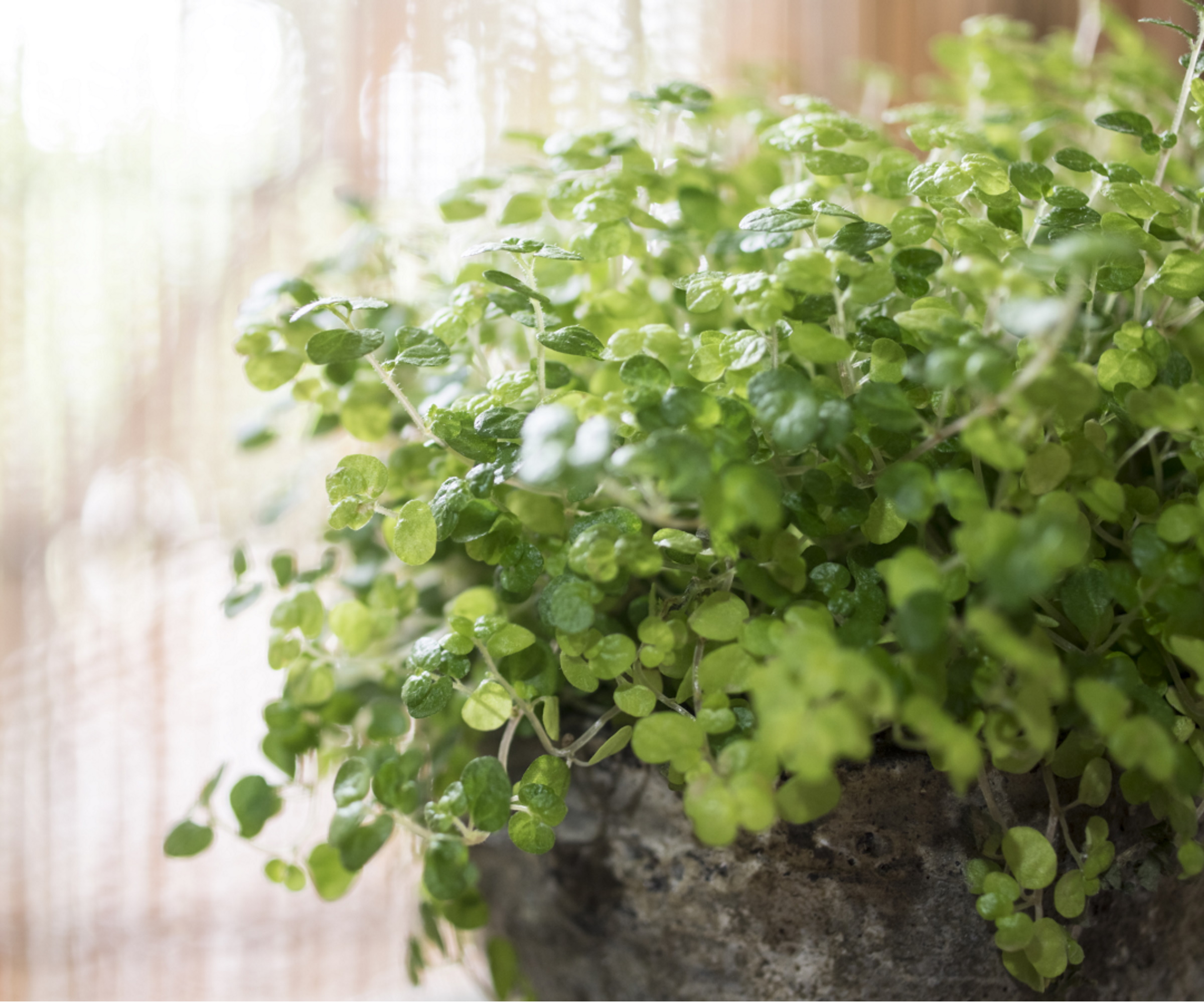
These plants are highly adaptable and will be quite happy wherever they are planted, however they do have a preference for shade.
'It has a preference for damp, shady conditions, but will tolerate a more open, bright location in your yard,' says Thomas.
Indoors, Soleirolia soleirolii will be pleased with bright, indirect light, like on an east or west-facing windowsill.
'Avoid placing it in direct sunlight as it can scorch the delicate leaves,' says Autumn Hilliard-Knapp, houseplant expert from Perfect Plants.

Autumn is a horticulture specialist and marketing professional at Perfect Plants Nursery. With four years of experience in the horticulture industry, she has developed a passion for helping people create beautiful indoor and outdoor spaces to enjoy. Her expertise in horticulture encompasses a broad range of activities, including plant care and selection, landscape design, and maintenance.
2. Keep moisture consistent
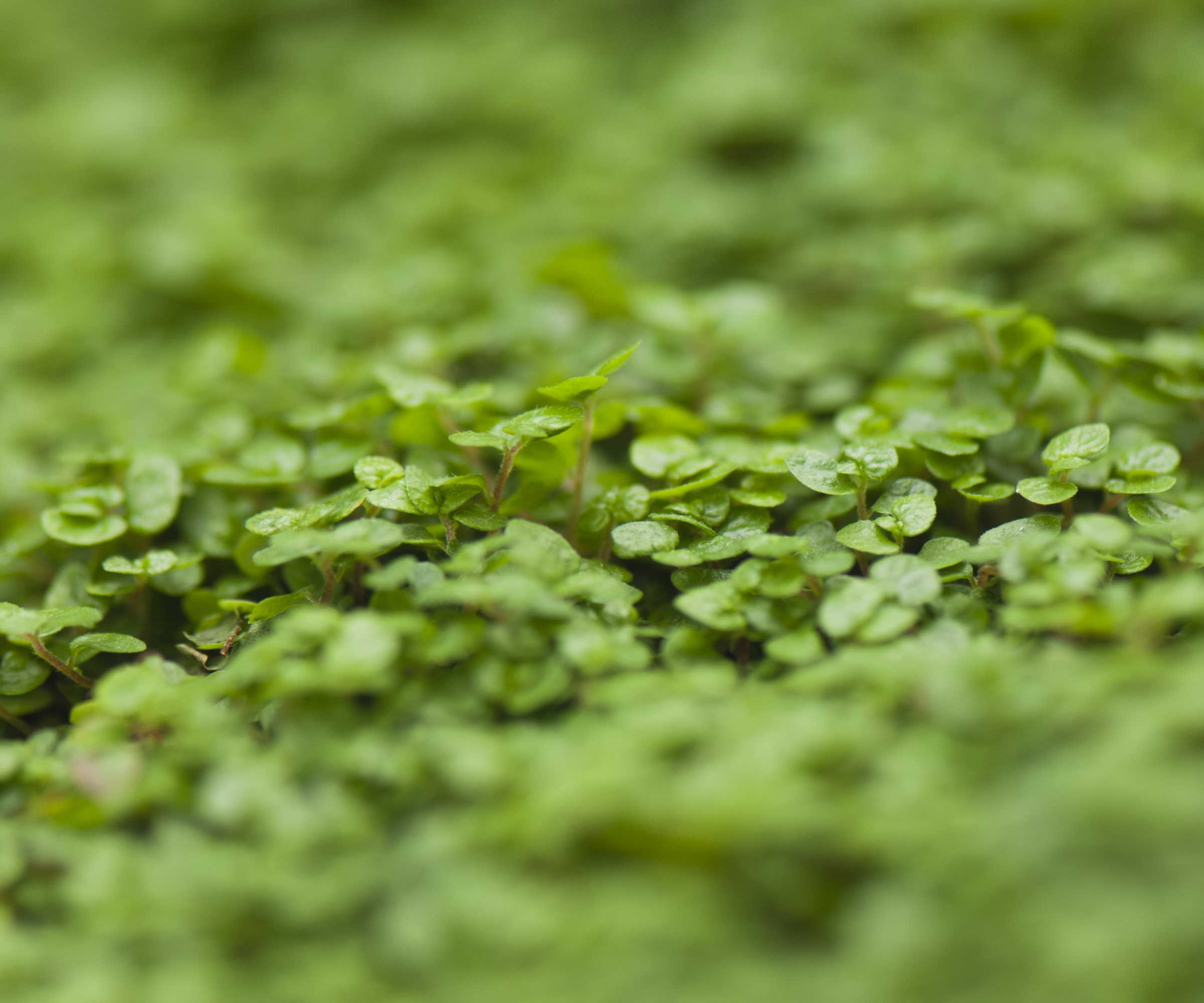
If you're growing mind-your-own-business in your backyard, rainfall will take care of watering but it's important to know how to water it in drier seasons.
'To water the baby's tears plant, maintain a consistent level of moisture in the soil without overwatering. Check the soil moisture by inserting your finger about two inches deep. Water the plant when the soil feels dry at that depth,' says Autumn.
Using a watering can with a narrow spout will work perfectly fine for this creeper, like this watering can from Amazon, but it will also appreciate higher humidity levels and you may choose to mist it - especially if you're growing it as a houseplant.
'In my experience, it does not enjoy long, dry periods during the summer months. If there is an extended period of drought, an occasional watering will do the plant good,' says Thom.
3. Grow it in containers
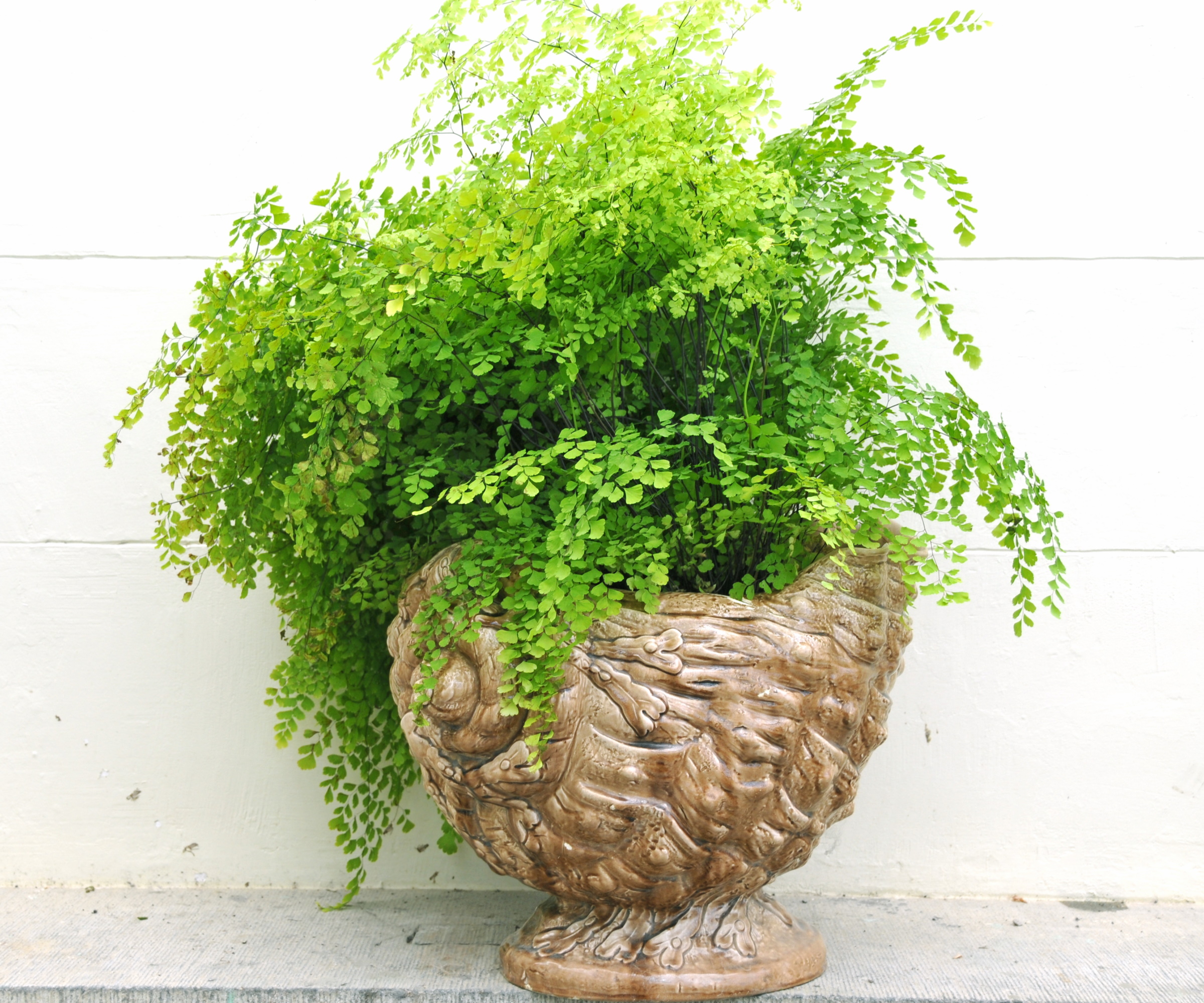
Whether your baby's tears plant lives indoors or out, growing it in a container can be a good idea to stop it from spreading too widely.
'This plant can spread rapidly and can regrow from tiny sections of stem and root. This can be a positive if you have the space for it, but be warned it can dominate and grow through other plants in your garden,' says Thom.
These plants don't like to be too wet so choosing a container with good drainage is a sensible option.
'Using a container made of materials like ceramic, terracotta, or plastic can be also suitable for the baby's tears plant. These materials can help retain moisture without becoming overly saturated, providing a balanced environment for the plant's roots,' says Autumn.
There are lots of containers like this available online, such as these terracotta planters from Walmart.
4. Prune to shape it
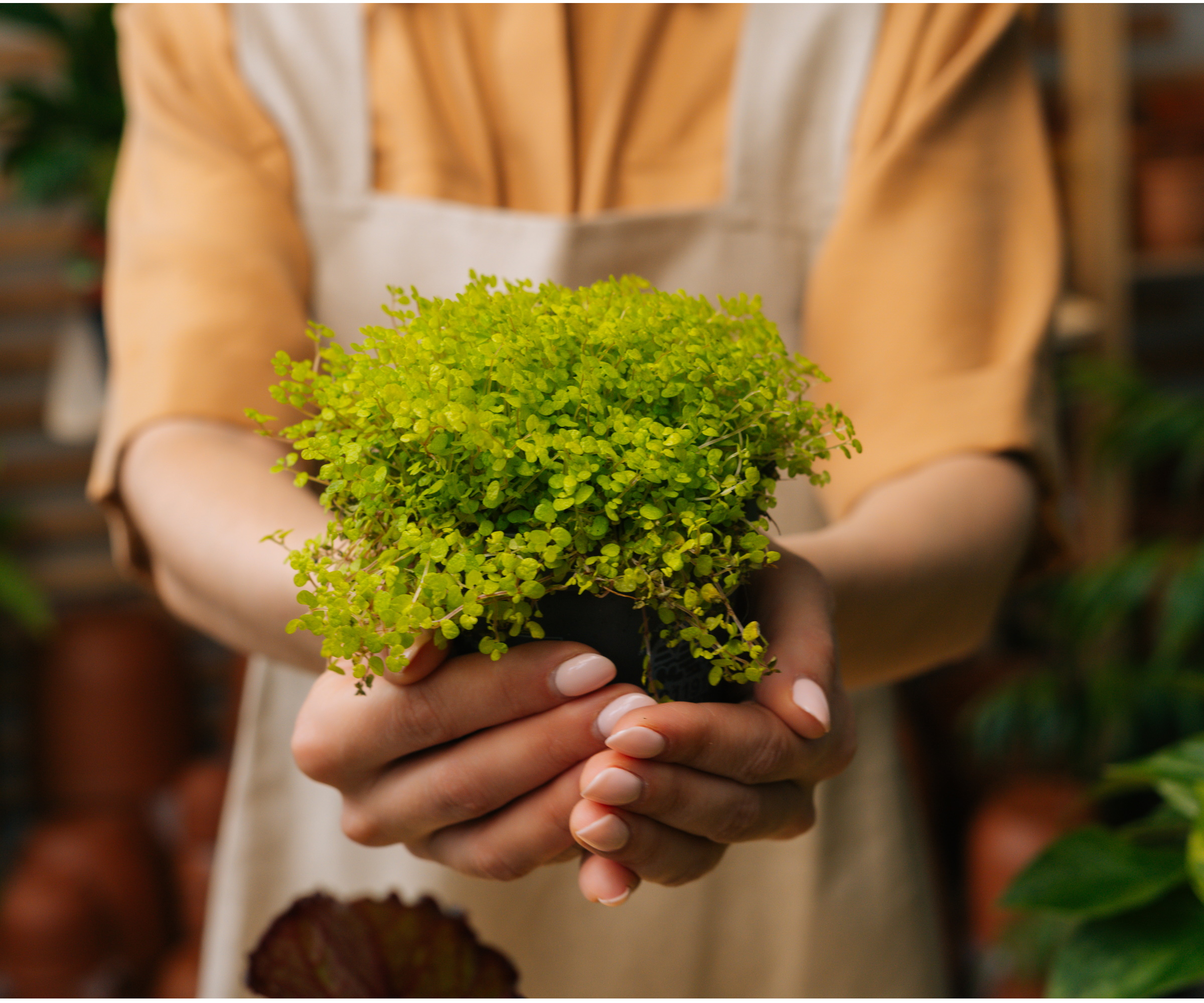
If you aren't careful, you'll find Soleirolia soleirolii growing everywhere in your backyard. They like to creep and crawl far and wide, so it can be a good idea to prune it back to keep it shapely and contained.
'Pruning helps prevent the plant from becoming leggy or straggly and encourages it to grow full and bushy,' says Autumn.
'You can trim the plant by using clean, sharp scissors or pruning shears to cut back any excessively long or overgrown stems or yellow/dead leaves,' she adds
Pruning for these plants, with tools like these pruning scissors from Bloomscape, is appropriate all year round, as of when your baby's tears plant is becoming too unruly for your liking.
5. Repot if necessary
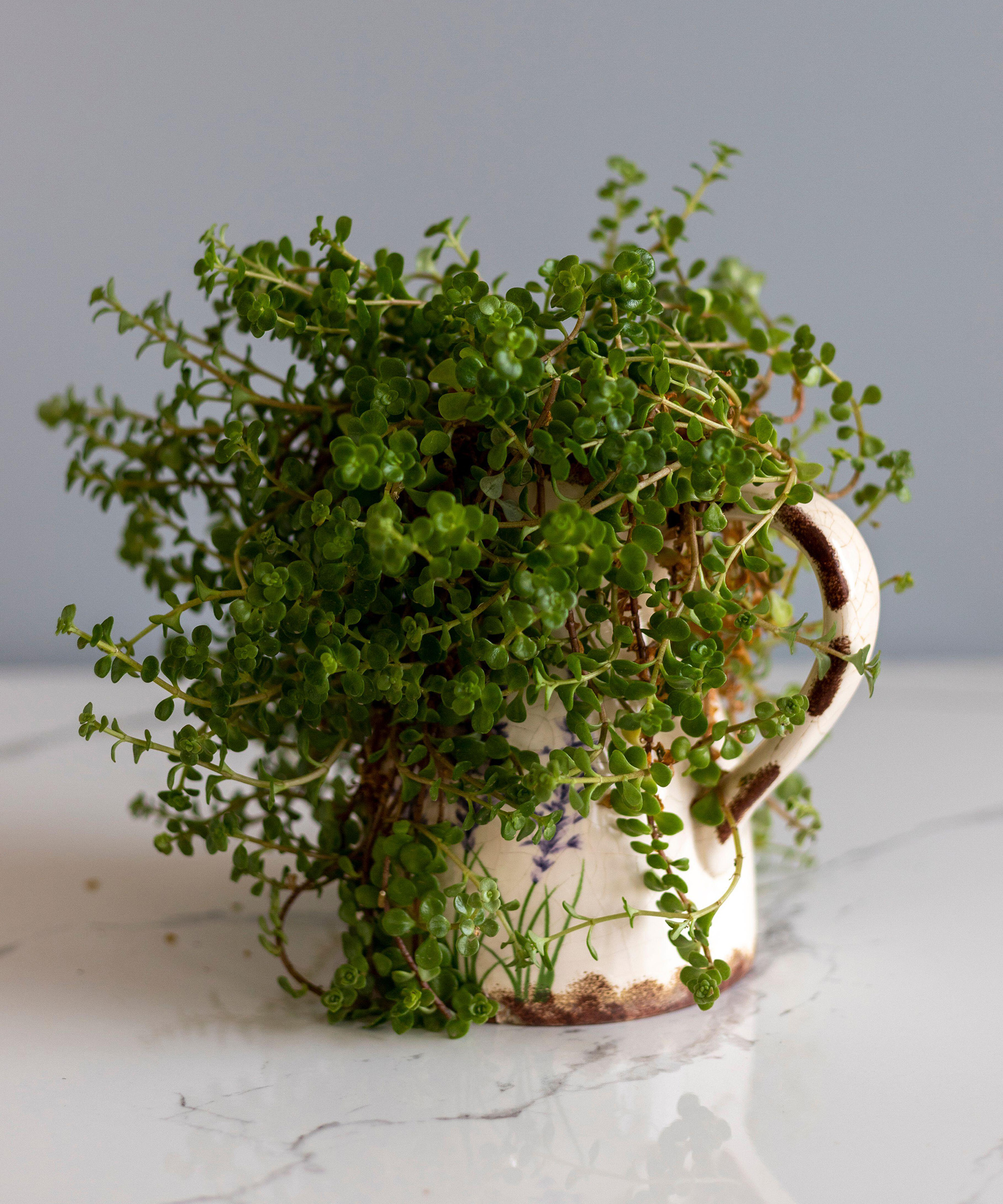
This is especially important if you choose to have mind-your-own-business as a houseplant because it is among the fast-growing indoor plants that will quickly turn your home into a jungle.
'Signs that indicate the need for repotting include roots coming out of the drainage holes, the plant toppling over easily, or water draining too quickly from the container,' says Autumn.
Not repotting houseplants that are outgrowing their current container risks them becoming pot-bound, hindering further growth.
'Repotting is best done in the spring when the plant is in an active growth phase. I would recommend repotting your plant about every two years. This will allow it to have nutrient soil and room to grow,' Autumn adds.
FAQs
When should you fertilize Soleirolia soleirolii?
Soleirolia soleirolii thrives when fertilized. It's best to fertilize these plants during warmer seasons in spring and summer while it's growing the most. This can be especially beneficial for baby's tears plants grown indoors and you can use all-purpose fertilizers like this liquid indoor plant food from Perfect Plants nursery.
What plants can you pair with Soleirolia soleirolii?
Soleirolia soleirolii is perfect for filling gaps in yards or adding greenery indoors. It is highly versatile and can be grown as ground cover, on walls, along paths or in containers. It pairs well with most plants but our favorite pairings include using it with trailing houseplants like pothos or ivy to create a fuller look in hanging pots.
Although Soleirolia soleirolii may seem unexciting at first glance, its beaded, creeping foliage can play a key role in filling gaps and unpleasing corners of yards. It's among the best ground cover plants and can make delightful indoor plants for green foliage.

Tenielle is a Gardens Content Editor at Homes & Gardens. She holds a qualification in MA Magazine Journalism and has over six years of journalistic experience. Before coming to Homes & Gardens, Tenielle was in the editorial department at the Royal Horticultural Society and worked on The Garden magazine. As our in-house houseplant expert, Tenielle writes on a range of solutions to houseplant problems, as well as other 'how to' guides, inspiring garden projects, and the latest gardening news. When she isn't writing, Tenielle can be found propagating her ever-growing collection of indoor plants, helping others overcome common houseplant pests and diseases, volunteering at a local gardening club, and attending gardening workshops, like a composting masterclass.